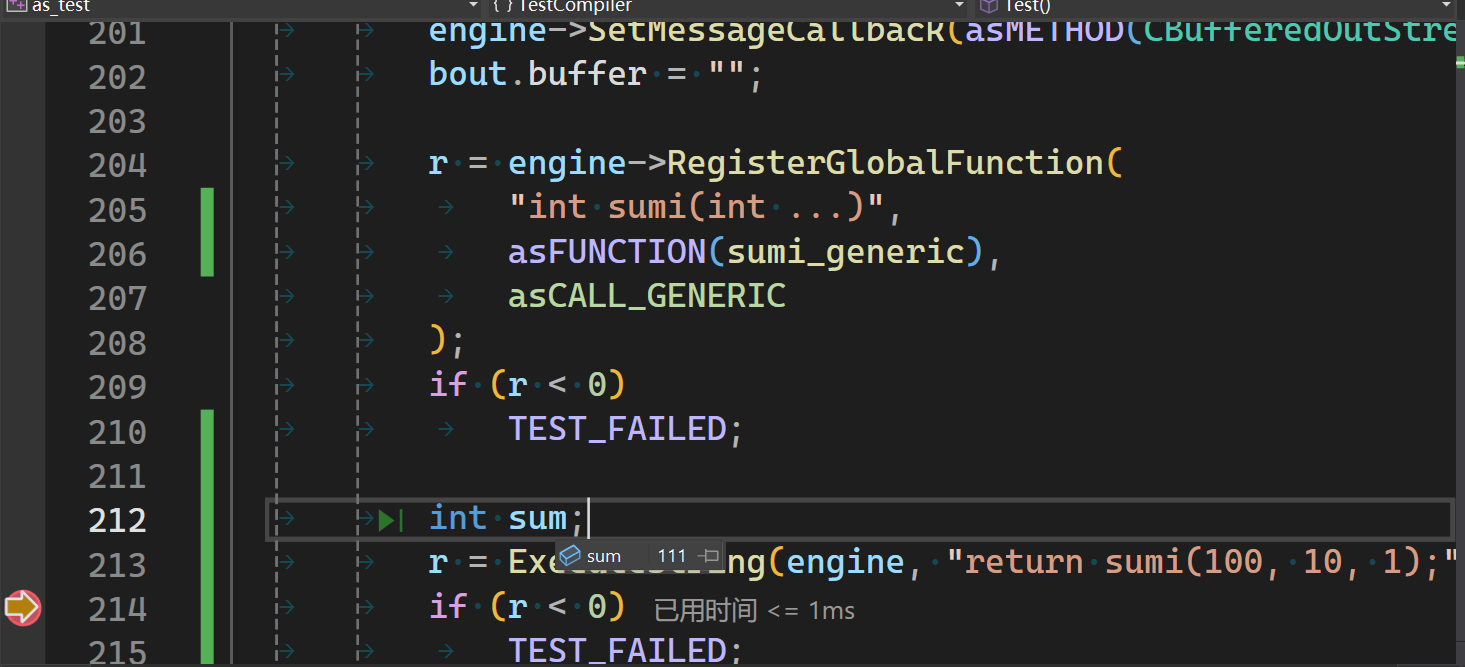Currently, registering a printf/format-like function in AngelScript is bothering. A workaround is using function overloads with parameters from less to more. I tried to modify the source code to implement variadic function support. This is the current version:

As you can see, the function is registered using int sumi(int …). The script can use sumi(100, 10, 1) to invoke it, getting the result 111 (shown by the debugger). Once this is complete, maybe developer can register a format function in declaration like format(const string&in fmt, ?&in …).
My current solution is adding a new flag IsVariadic for function. Function with this flag will treat the last parameters as a special one, allowing any number of arguments of this type passed to the target function. The argument count is pushed to stack as the hidden first argument using PshC4. This will be handled by a sightly modified asCGeneric. The user code can use gen->GetArgCount() and other interfaces to retrieve arguments.
For example, this is the C++ code of sumi_generic in the above screenshot:
void sumi_generic(asIScriptGeneric* gen)
{
int result = 0;
int count = gen->GetArgCount();
for (int i = 0; i < count; ++i)
{
int val = (int)gen->GetArgDWord(i);
result += val;
}
gen->SetReturnDWord(result);
}However, it seems that it needs some further consideration when playing with named arguments. Should allow that special parameter to have a name? Thus, given a function int func(int a, int b, int… args) , we can probably write int result = func(args:1, args:2, args:3, a:0xA, b:0xB);.








